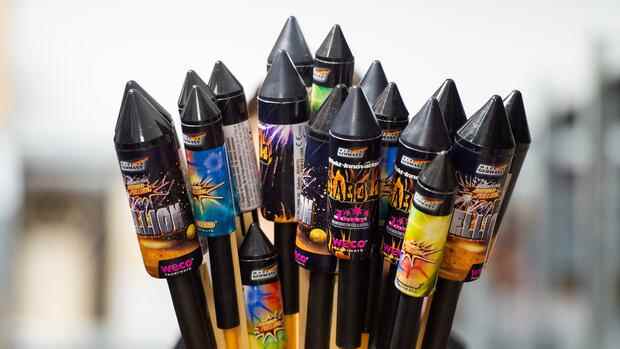Dusseldorf New Year’s Eve in 2020 was quiet and dark. That should also be the case this year: The sale of fireworks will be banned for the second year in a row. This emerges from the decision of the federal and prime ministerial conference on Thursday afternoon. This should help not to put additional strain on the hospitals in the fourth corona wave.
The sales ban has serious consequences for Germany’s leading fireworks manufacturer Weco. The company from Eitorf near Bonn generates 95 percent of its business on the last three days of the year.
Weco had stored the rockets and firecrackers that had already been procured last year for a year – at its own expense. “The ban had catastrophic consequences for our company and caused financial damage in the double-digit millions,” says Thomas Schreiber, management spokesman at Weco.
In order to save the company, the entire workforce was ordered to work short-time for around a year. “That was one of the few ways to save running costs and prevent bankruptcy,” said Schreiber. “It was only possible to keep the company going with great efforts, further credits and huge losses for our employees.”
Top jobs of the day
Find the best jobs now and
be notified by email.
Impending bankruptcies
The renewed ban means “in all probability the death knell for the entire fireworks industry in Germany,” warned the Association of the Pyrotechnic Industry (VPI) on Thursday. The 3000 employees in the industry are threatened with unemployment. In today’s resolution, the affected companies are promised a corresponding compensation.
The real problem on New Year’s Eve is excessive alcohol consumption and illegal fireworks products, according to the association. Klaus Gotzen, managing director of the VPI, said: “This is a symbolic ban on our backs and has no effect.” An entire industry is left to itself and the impending bankruptcy.
Before the pandemic, Weco made almost two thirds of the industry’s turnover with 400 employees. The Freiberg production site with a 300-year tradition is now to be closed.
The German pyro industry had an annual turnover of 122 million euros in 2019. But business has been declining for years – also for environmental reasons. The German Environmental Aid and other associations have been criticizing, among other things, the high level of fine dust pollution for years.
More: What the federal and state governments have agreed on – Merkel speaks of an “act of national solidarity”
